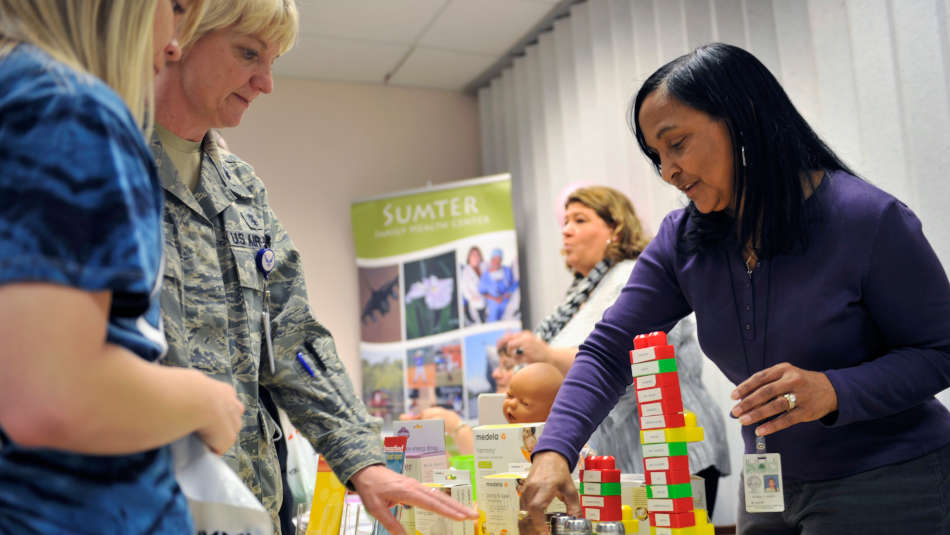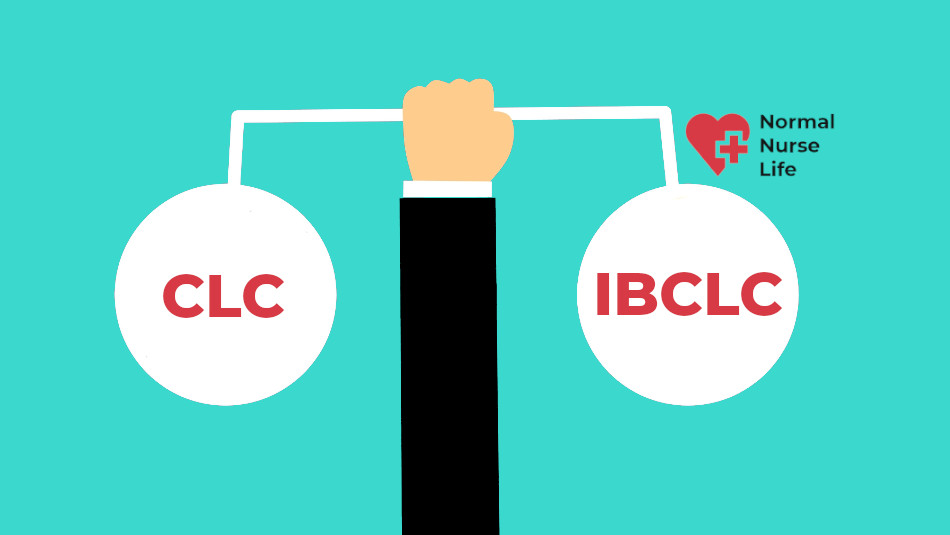If you are becoming a mom for the first time then you might be going to have a number of new experiences in your life. Breastfeeding is one of the main experiences you are going to have after giving birth to a child.
But over 70% of new moms who choose to breastfeed their child could not succeed without support or help.
In this situation, it has been recommended by the experts that would-be-moms should join breastfeeding classes before giving birth to a child.
There are two main sources to get authentic information about breastfeeding – CLC and IBCLC. In this write-up, we are going to compare CLC vs IBCLC on various parameters including their salaries and scope of practice, etc.
But before comparing CLC vs IBCLC, you must know them a bit more closely.
Table of Contents
What is CLC?
A CLC or Certified Lactation Consultant is considered as a reliable source of information for the would-be-moms. They can provide various types of information to pregnant women about breastfeeding their newborns.
It may include information about the right position of their baby while breastfeeding him/her, duration of breastfeeding as well as the ways to communicate with the little one and recognizing the signs given by him/her.
The tricks and tips provided by a CLC about the tenderness of breast, problems in the production of milk, weaning and infection, etc. are considered as the tips of expert-level as it takes time and dedication to become a CLC.
In fact, the role of a CLC is to make the nursing experience successful and enjoyable for the new moms and their babies.
How about IBCLC?

An IBCLC or International Board Certified Lactation Consultant is a healthcare professional who is an expert in the clinical management of breastfeeding.
The candidates certified by the examiners of the International Board of Lactation Consultants become IBCLC to offer guidance, support, professional development, and research to breastfeeding moms in various environments.
To become an IBCLC, one has to go through an approved breastfeeding education program for 90 hours to cover the topics of human breastfeeding and lactation.
Their knowledge is tested for up to 5 hours through a multiple-choice test.
Before their exam to get a personal experience of the education they are getting, they have to participate in the practice in a clinical environment to educate and support breastfeeding moms.
For more detailed information: What is IBCLC?
Which is the better: CLC vs IBCLC?
The basic difference between CLC and IBCLC is in the number of hours of clinical practice required for their certification program. IBCLCs are also different from CLC because of the educational qualification required for their program of certification.
So for these reasons CLC and IBCLC are considered professional lactation consultants of different types.
CLC professionals are considered doulas and midwives with a holistic mindset whereas IBCLC professionals are considered as registered nurses and physicians due to their academic and clinical background.
In this way, IBCLC can be better than a CLC but practically people can choose one on the basis of her style and presentation than her experience and training.
CLC vs IBCLC salary

The salary of CLCs or Certified Lactation Consultants can vary in the US from $25,900 to $70,000 and an average salary can be around $40,000.
This variation can be on the basis of their location, experience, and type of duty.
Though the average salary of CLCs is around $40,000 but most of the top CLCs earn up to $70,000 as their annual salary.
The salary for IBCLC or International Board Certified Lactation Consultants in the US can range from $48,000 to $110,000 but their average salary can be nearly $67,000.
The difference in their salary can be on the basis of their work experience, post, and location of their employment.
After a good experience and expertise, they can earn even more than $110,000 per annum.
In the competition between salaries on CLC vs IBCLC the winner is IBCLC.
CLC vs IBCLC scope of practice
Let’s take a look at the CLC first.
Scope of practice for Certified Lactation Consultant or CLC
After completing the certification program for CLC one can be recognized a professional lactation consultant who can provide consultancy services to the breastfeeding moms and their families as well as satisfy their queries on the basis of their skills, knowledge, and experience.
One can be a successful CLC after completing the Breastfeeding Counselling Training Course and a Job Task Analysis set by UNICEF/World Health Organization.
They also have to pass an exam conducted by ALPP or Academy of Lactation Policy and Practice and have shown their skills and competency in the clinical environment to provide safe and evidence-based counseling about lactating and breastfeeding to pregnant women and their families.
The scope of practice for a CLC can be:
- Capability to identify their own as well as other’s values, attitudes, and probability about healthy lifestyle and feeding infants
- Capability to use a personalized approach to management and counseling of breastfeeding ranging from presumptions to feeding other than mother’s milk
- Capability to use the effective and the right communication skills according to the client
- Capability to recognize the chances to provide education or information to the breastfeeding moms, their families as well as the group of families, healthcare providers, the community and the workers in a health care set up within their counseling area
- Capability to assess the mental status as well as nutritional, psychological and physical aspects of the breastfeeding moms and babies
- Capability to use tools reliably to assess the effectiveness of the transfer of milk and breastfeeding
- Capability to integrate proven approaches to make and practice the right referrals for operating with various teams of health care workers
- Capability to promote, support and protect breastfeeding according to the programs, legislations, and policies of state, national and international standards as per their knowledge
In this way, the purpose of the certification program of CLC is designed to protect the people by recognizing individuals who have knowledge and skills as well as are capable in the management of lactation.
Many CLCs who have other educational qualifications and licenses have scope to practice as a counselor, nurses, dieticians, doulas, home visitors, nutritionists, midwives, physicians, speech therapists, occupational therapists, and counselors for mental health, etc.
See also:
Scope of practice for IBCLC or International Board Certified Lactation Consultant

The holders of IBCLC or International Board Certified Lactation Consultant certificate certified by the examiners of the International Board of Lactation Consultant are considered as professionals with specialized clinical practice and knowledge in human lactation and breastfeeding.
The scope of practice of IBCLC is based on the education provided to them to engage in authoritative practices.
The main aim of their scope of practice is to promote the use of safe and proven components and care procedures to protect people.
The scope of practice of IBCLC can be applicable in any setting or country where they can practice as it is a credential with international accreditation.
The scope of practice of an IBCLC may include duties like:
- Work within the environment set by the Clinical Competencies and the IBLCE Code of Professional Conduct for the practice of IBCLC
- Using evidence and knowledge-based disciplines for providing care to the breastfeeding families as suggested by the Detailed Content Outline.
- Working with geopolitical settings and regions in a legal setup
- Continue education regularly to maintain their skills and knowledge.
- Work as a supporter as per the norms of child and breastfeeding
- Educate health professionals, community and families about human lactation and breastfeeding
- Provide proven, complete, and skill-based information about human lactation and breastfeeding to the breastfeeding families from preconception to weaning.
- Help in developing the policies to promote, support, and protect breastfeeding.
- Recognizing the mental status and health of the child and parent regarding breastfeeding
- Assessing the breastfeeding and human lactation habits of child and mother completely
- Planning and executing the feeding plans after consulting the client on an individual basis.
- Provide proven information about the use of medication, tobacco, addictive drugs, alcohol, supplement, or herbs during human lactation and breastfeeding and their effect on the safety of child and production of milk.
- Including the psychological, nutritional and cultural aspects of human lactation and breastfeeding
- Encourage and support to meet the goals of breastfeeding successfully
- Interacting with the members of the health care team and clients by using counseling skills effectively
- Maintaining a supportive and collaborative relationship with clients by using the principles of family care
- Teaching health care providers, clients and others in the community by using the principles of adult educations
Comparing the scope of practice on CLC vs IBCLC the winner is slightly IBCLC.
Conclusion: CLC vs IBCLC
Licensing for lactation consulting professionals is not required in many states of the US like Oregon, New Mexico and Georgia, etc. because lactation consulting is not a regulated industry.
Still, the lactation consultants with CLC consider them equivalent to IBCLC as both of them work for helping breastfeeding women.
However, the designations of CLC and IBCLC are quite different.
To be an IBCLC one has to undergo the hands-on clinical experience of working with breastfeeding moms for thousands of hours.
On the other hand, anyone can join a CLC program to help new mothers and babies in breastfeeding.
But, according to the opinion of professionals, the difference between CLC vs IBCLC is just like the difference between an aide nurse and a registered nurse.
In this way, IBCLC can be considered better than CLC but the goal of both of them is to help women in breastfeeding successfully.
The presence of either of them is important in a healthcare facility to take care of the problems of breastfeeding moms and children.
At this point, you should know all that comes into the topic CLC vs IBCLC.
If you want to learn more, check out these related articles of ours:
- What Happens at a Lactation Consultant Appointment?
- Can a Lactation Consultant Prescribe Medication?
- How to Become a Lactation Consultant
- What is IBCLC?
- Why Nurses Leave the Bedside?
I’d be glad if you could give this article a star rating. Thank you in advance!
